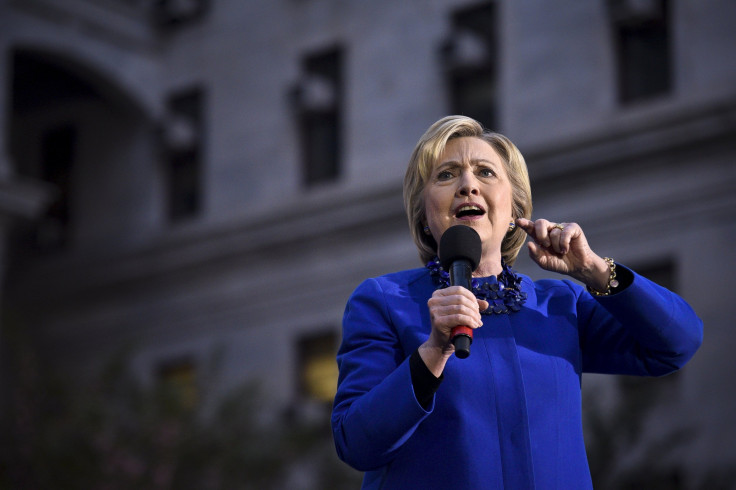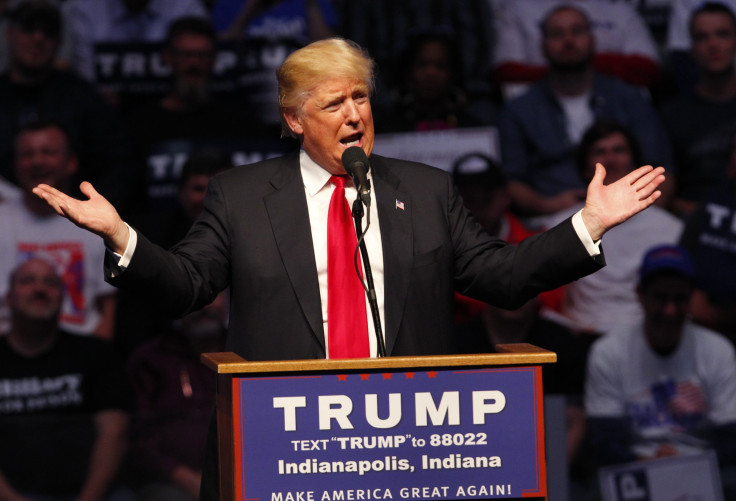Hillary Clinton Slams Donald Trump For Praising Dictators, But She Has Praised Dictatorial Regimes That Donated To Her Family Foundation

After decisive victories over Sen. Bernie Sanders in four of the five Northeast states that voted in Tuesday’s primaries, former Secretary of State Hillary Clinton started pivoting toward her likely opponent in the general election, Donald Trump. Her campaign released a list to draw contrasts with the real-estate mogul on foreign policy — considered one of his weak points — arguing that, among other undesirable qualities, Trump praises brutal dictatorships abroad.
Trump has indeed spoken highly of oppressive dictators and violent acts like the Chinese government’s 1989 crackdown on Tiananmen Square in Beijing (when hundreds of pro-democracy protesters were slaughtered by their country’s military), Russian President Vladimir Putin and even North Korea’s Kim Jong Un. Clinton, though, has also had some kind words about authoritarian regimes around the globe, including leaders of Syria, Saudi Arabia and Egypt.

While secretary of state in 2009, Clinton praised Egypt’s then-dictator Hosni Mubarak, telling ABC News she considered the president “and Mrs. Mubarak to be friends of my family.” Last year, following the death of Saudi King Abdullah bin Abdulaziz, the Clintons released a statement through their foundation saying that they were “grateful” for the king’s efforts to bring peace to the Middle East, the close economic cooperation between Saudi Arabia and the U.S., and the “kingdom’s humanitarian efforts around the world.” On Syrian President Bashar Assad, the Intercept notes that the Democratic front-runner suggested in 2011, as the revolt against him began, that he had the potential “a reformer.”(She was referring to the thoughts of members of Congress who had been to Syria, though she was not challenging their assessment.) Clinton also praised Chinese President Xi Jinping in 2013, who she said appeared to be a pragmatic leader and a natural politician.
In the years since, some of these rulers have not fared well. Mubarak was swept from power in 2011 as part of the Arab Spring revolutions. Saudi Arabia remains an important American ally but is not entirely trusted — even by the U.S. State Department — and has been cited by Human Rights Watch for cracking down on dissidents, repressing women and religious minorities and subjecting hundreds a year to unfair trials, arbitrary detention and execution by beheading. Assad is embroiled in a bloody civil war that has caused one of the worst humanitarian crises in modern times.
At the same time, Clinton’s family foundation has received quite a bit of cash from dictatorial regimes abroad. In the years leading up to Clinton becoming secretary of state, the foundation received at least $10 million from Saudi Arabia. Clinton’s State Department later approved $29 billion worth of defense contracts between U.S. companies and the kingdom. Clinton’s State Department also approved arms sales to countries with authoritarian regimes that the department itself criticized for human rights abuses, including Algeria, Kuwait, the United Arab Emirates, Oman and Qatar. All of those regimes donated to the Clinton Foundation as well.
© Copyright IBTimes 2024. All rights reserved.












